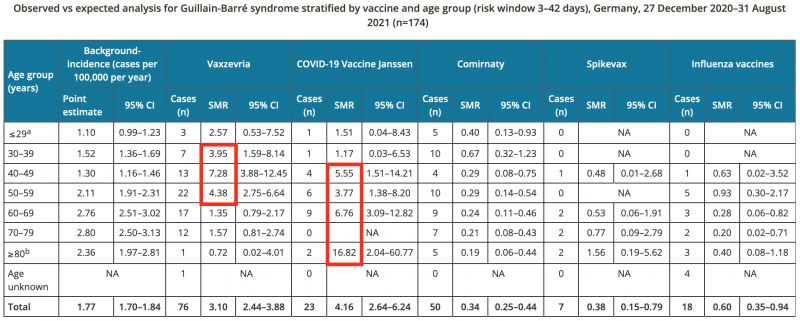impf-info.de
Covid19 - Risiko eines Guillain-Barré-Syndroms nach Virusvektor-Impfstoffen teilweise fast 8-fach erhöht
Auch wenn Covid19 medizinisch eigentlich durch ist: wenn das PEI und das RKI schon mal gemeinsam forschen und veröffentlichen...
In einer seiner berüchtigten "Observed-vs.-expected-Analysen" (die beim Thema Myokarditis nach mRNA-Impfstoffen teilweise sehr originelle Ergebnisse zeitigten) untersuchten Autoren beider Behörden das Risiko eines Guillain-Barré-Syndroms (GBS - einer potentiell lebensbedrohlichen Nervenlähmung) nach Covid-Impfstoffen.
Es zeigte sich ein - je nach Altersgruppe - bis zu fast 8-fach erhöhtes Risiko deines GBS nach den Vektor-Impfstoffen, bei allerdings aufgrund der geringen absoluten Fallzahlen sehr großen Vertrauensbereichen.
Eurosurveillance | Rare cases of Guillain-Barré syndrome after COVID-19 vaccination, Germany, December 2020 to August 2021
By accepting you will be accessing a service provided by a third-party external to https://impf-info.de/

